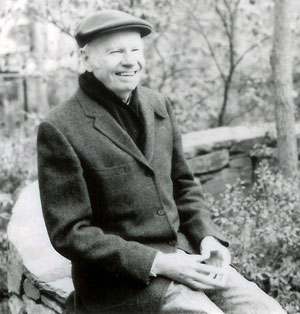, M.D.
United States
In my clinical practice, supervision, and teaching of psychoanalysis my aim is to further not only the alleviation of patients' symptoms and distress but to foster access to an autonomy that can come gradually from an experiential and cognitive understanding of how their minds work. Fifty years ago, I was successfully using our traditional, mainstream Freudian methodology. Thirty years ago, I began to evolve in my work and in my contributions to our literature a modification in technique of the analysis of conflict and defense. Simply put, in my subsequent teaching and series of papers I encouraged extending Anna Freud's description of changing the traditional "free floating" attention in analytic listening to one of close attention to the patient's ongoing processing of affects when they manifest in consciousness conflicts that initiate demonstrable defensive solutions. I de-emphasized, among other thing, traditional interpretative activities, and instead stressed the avoidance of comments based on contexts outside the observable material of the mind as it is actually functioning in the analytic situation. This contrasts with the intentions of traditional interpretations which create unconscious "disequilibria", followed by fresh compromise formations. over the years, I have continued to accumulate evidence that close attention to the patient's processing of affect provides an especially useful degree of experiential access to the drive derivatives of aggression. Analysis of conflicted derivatives of aggression, not only reduces the many defensive tendencies to turn-on-the-self, it also reduces fear of aggression evoked by frustration and thereby permits analysands to risk experiencing greater degrees of transferred libidinal longings despite the inevitable disappointments that follow. - excerpted from Dr. Gray's remarks. Dr. Gray earned his B.A. and M.D. degrees at the University of Chicago. As a training and supervising analyst with the Baltimore-Washington Institute for Psychoanalysis for many years, he taught candidates and graduates, as well as social workers and psychiatric residents in the community. Elected twice as Councillor-at-Large, Dr. Gray was active with the American Psychoanalytic Association. For more than thirty years he was a regular participant in the semi-annual conferences of the Center for Advanced Psychoanalytic Studies, held in Princeton, NJ. In 1997, Dr. Gray gave the Freud Memorial Lecture at the New York Psychoanalytic Society. In 2000, he received the American Psychoanalytic Association Award for Distinguished Contribution to Psychoanalytic Education, and was the recipient of the Mary S. Sigourney Trust Honorary Award for Outstanding Contribution to Psychoanalysis.
Dr. Gray earned his B.A. and M.D. degrees at the University of Chicago. As a training and supervising analyst with the Baltimore-Washington Institute for Psychoanalysis for many years, he taught candidates and graduates, as well as social workers and psychiatric residents in the community. Elected twice as Councillor-at-Large, Dr. Gray was active with the American Psychoanalytic Association. For more than thirty years he was a regular participant in the semi-annual conferences of the Center for Advanced Psychoanalytic Studies, held in Princeton, NJ. In 1997, Dr. Gray gave the Freud Memorial Lecture at the New York Psychoanalytic Society. In 2000, he received the American Psychoanalytic Association Award for Distinguished Contribution to Psychoanalytic Education, and was the recipient of the Mary S. Sigourney Trust Honorary Award for Outstanding Contribution to Psychoanalysis.
Dr. Gray's book, represented a major advance in analytic technique. This book, together with the series of seminal journal articles he published over a 30 year period are a testament to Gray's pioneering intellect. They stirred up enormous interest and controversy about the most important part of psychoanalytic technique: how the analyst listens.
Dr. Gray died July 26, 2002.




